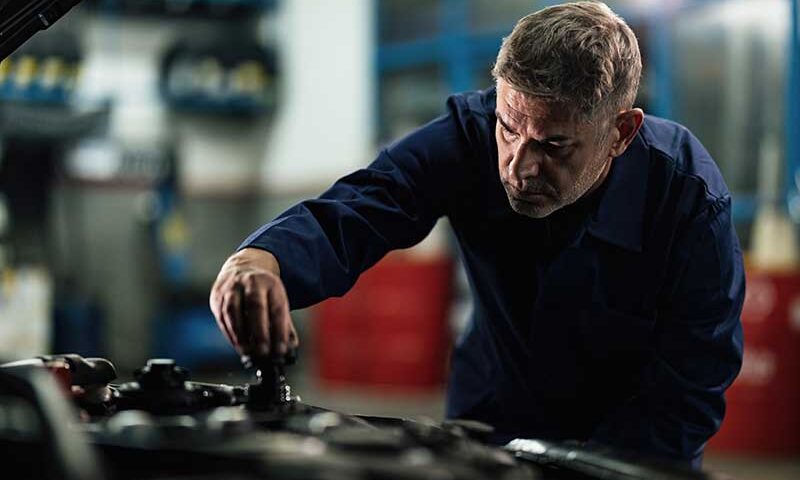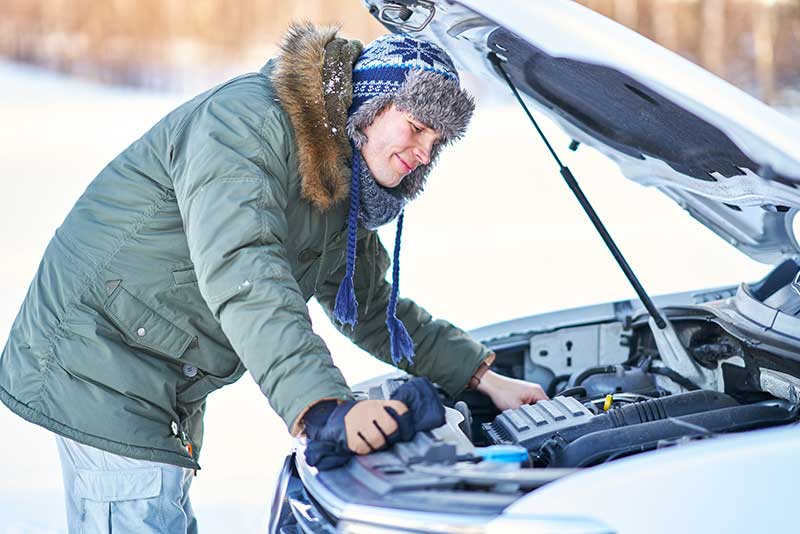Preventing Car Radiator Leaks Maintenance Tips

5 Common Car Problems Warning Signs to Watch For
June 1, 2023
Quick Fixes for Difficult Car Start-ups
August 15, 2023Maintaining the health of your vehicle’s radiator is crucial for optimal engine performance and avoiding expensive repairs. A radiator leak can result in overheating, engine damage, and even roadside failures. In this article, we’ll go over some maintenance techniques that will help you prevent radiator leaks and keep your car running smoothly.
1.Conduct Routine Inspections of Your Radiator
Routine inspections of your car’s radiator are essential for detecting potential problems early on. Check for corrosion, rust, and physical damage such as fractures and leaks. Examine the radiator cap and hoses for any signs of deterioration or damage. Rapid resolution of these issues can prevent the development or worsening of leakage.
2.Maintain Appropriate Coolant Levels
A radiator’s primary purpose is to chill the engine by circulating coolant. Low levels of coolant can cause the engine to overheat and place excessive strain on the radiator, resulting in leakage. Check the coolant levels frequently and top them off if necessary, ensuring that they are within the range specified in the owner’s manual.
3.Use the Appropriate Coolant and Water Mixture
Using the proper coolant and water mixture is crucial for the efficient operation of the radiator and the prevention of leakage. Consult the manufacturer’s guidelines to determine the correct coolant type and mixing ratio. Tap water contains minerals that, over time, can accumulate and cause radiator obstructions or corrosion.
4.Flush and Replace Coolant Periodically
Coolant can become contaminated with detritus, rust, and other particles over time, which can clog the radiator and cause leaks. It is recommended to flush and replace the refrigerant in accordance with your vehicle’s maintenance schedule or the manufacturer’s recommendations. Flushing the system will eliminate any sediment buildup, ensuring optimal radiator performance and reducing the likelihood of leakage.
5.Inspect and Maintain Radiator Hoses
Routinely inspect the radiator hoses for signs of wear, fractures, and leaks. Replace leaking hoses immediately to prevent leakage of refrigerant. In addition, ensure that the hose connections are adequately secured and clamped. Loose or damaged hoses can result in engine overheating due to coolant leakage.
6.Maintain the Radiator’s Cleanliness
A clean radiator facilitates heat transfer and prevents overloading. Regularly clean the radiator’s exterior to remove grime, debris, and insects that can impede airflow. Be careful when scrubbing delicate fins to avoid damaging them. Additionally, ensure that the front grille is devoid of obstructions to ensure adequate ventilation to the radiator.
7.Avoid Overheating Situations
Prolonged overheating can severely damage the radiator of your vehicle. Avoid traveling in extreme heat or exceeding your engine’s capabilities. Monitor the temperature gauge and respond quickly to any indications of scorching. If the engine overheats, pull over to a secure area and let it cool down before proceeding.
The key to maintaining the health and longevity of your vehicle is preventing radiator leakage through routine maintenance. By adhering to these maintenance tips, you can reduce the likelihood of radiator leaks, enhance engine performance, and avoid costly repairs in the future. Remember to consult the owner’s manual and seek professional assistance if you encounter complicated radiator issues or concerns.


